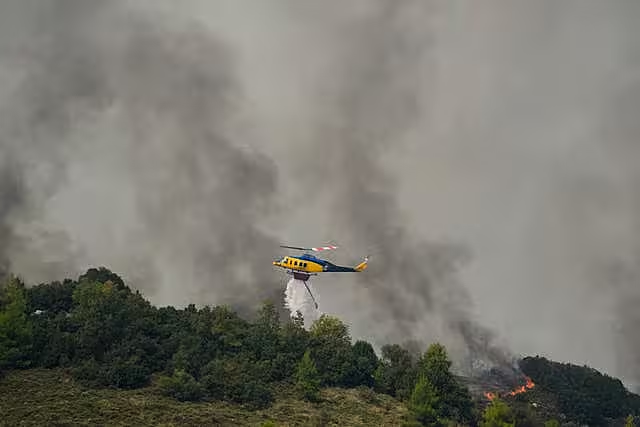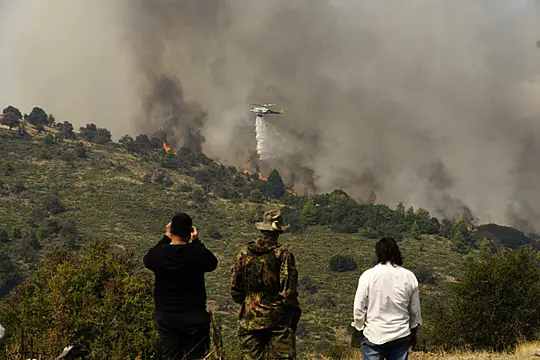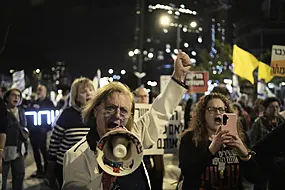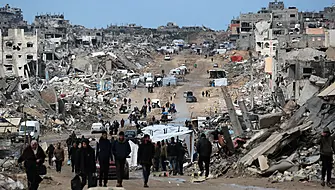Hundreds of firefighters and volunteers in southern Greece battled a wildfire for a third day that has killed two people and devastated a large forested area, prompting pledges of assistance from other European Union countries.
Three waterbombing aircraft from Italy and Croatia were due to arrive later on Tuesday after Greece requested help through the 27-country bloc’s emergency civil protection mechanism.
The Greek fire service said more than 400 firefighters, assisted by 20 aircraft, were engaged against the blaze in the mountains of Corinthia in the Peloponnese region.

The authorities were optimistic that progress had been made as the main front of the blaze was out, leaving a large number of scattered fires.
But it remained unclear whether that success could be expanded on before winds whipped up and spread the blaze again.
Government spokesman Pavlos Marinakis said firefighters had been hampered in their initial response by the difficult terrain and poor road network.
“During the first, crucial stage of the fire, firetrucks had great difficulty approaching (the blaze) because of the narrow roads,” he said.

“The many ravines and the gale-force winds blowing that day greatly impeded” the firefighting effort, Mr Marinakis added.
Officials ordered that another village be evacuated as a precaution on Tuesday, a day after half-a-dozen similar orders were issued.
A major road that was closed overnight as flames swept close by was reopened on Tuesday.
The blaze destroyed a historic church in the mountains and reportedly damaged buildings outside the threatened villages, but the fire service was not immediately able to provide further details.
The two victims were identified as local residents who got trapped late on Sunday by the fast-advancing blaze.

Greece, like other southern European countries, is hit every summer with destructive wildfires that have been exacerbated by global warming.
Over the past few months, the fire service has had to cope with more than 4,500 wildfires.
This year’s had been flagged as the most dangerous fire season in two decades after the countryside was left parched by a protracted drought and early summer heatwaves.
But Greece’s big investments in extra water-bombing aircraft, warning drones and other equipment have led to most blazes being extinguished shortly after they broke out.







